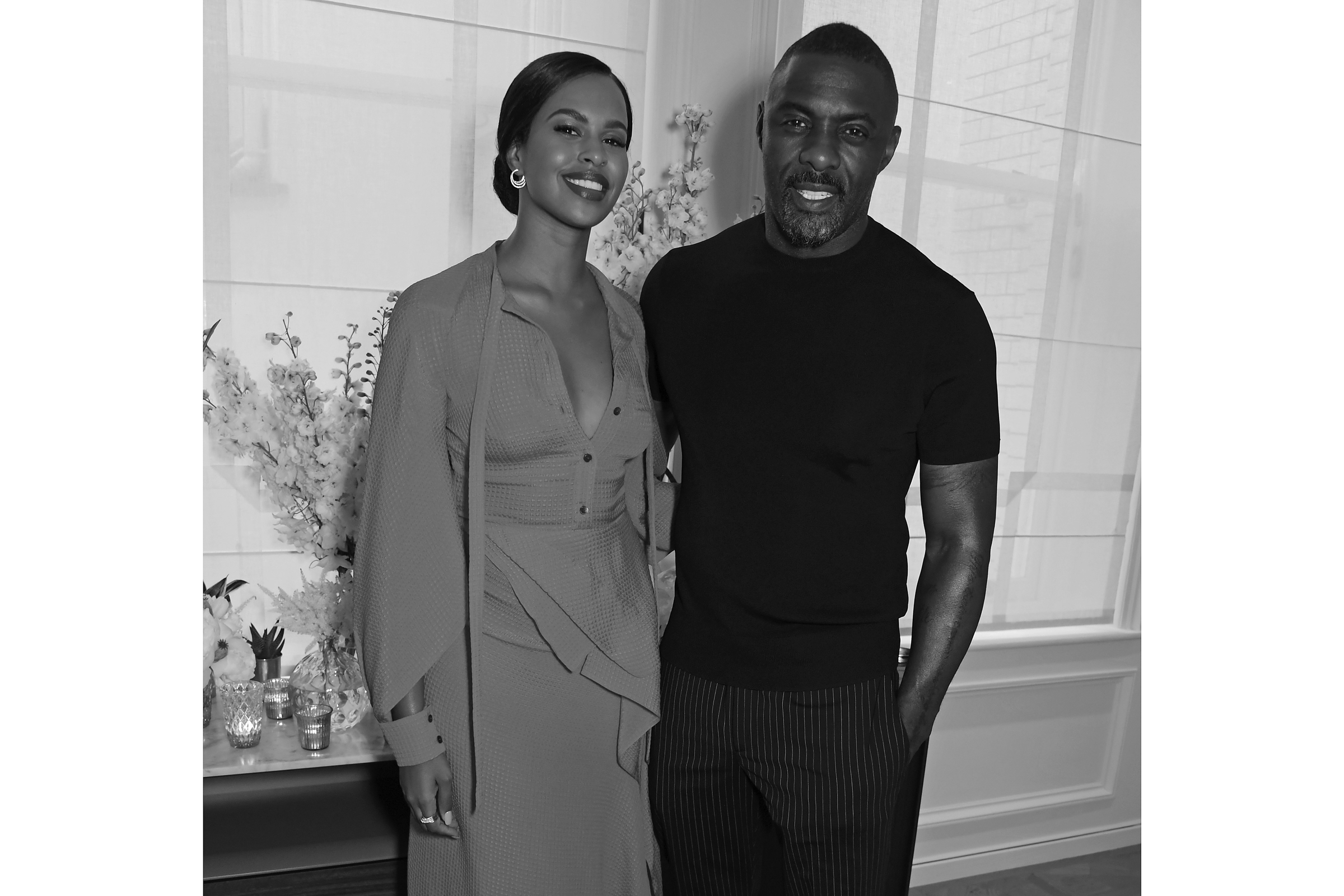Idris Elba and Sabrina Dhowre Elba are, by definition, a power couple. The former is an English actor and DJ. The latter is a Canadian actor and model. Both successful in their own right, they also wield their power and influence together to make real and lasting change.
“As an actor, the skill set between getting someone to believe a fictional story is not too dissimilar from the skill set of trying to tell someone that this is real and it is a problem,” Idris says. “It is about passion and it is about heart.”
Specifically, the Elbas focus on food security, climate change, and environmental conservation—and Sabrina also concentrates on challenges faced by rural women and girls. Both Idris and Sabrina are goodwill ambassadors with the International Fund for Agricultural Development (IFAD), a specialized agency of the United Nations that invests in rural people in developing countries to address poverty and hunger.
In December 2019, the pair took a trip to Sierra Leone—where Idris’ father is from, and where his father married his mother, who is Ghanaian. (Sabrina is of Somali descent.) The trip doubled as a homecoming for Idris (his first time in the country) and a site visit to an IFAD-supported project, where they met farmers who had received financial assistance and rice production support after Ebola.
“It’s talking to people, and having the privilege of not only being in the bigger rooms, but being on the field, and hearing what rural people are going through in the present time,” Sabrina says. “Not through some data sheet in some room apart and far away from what’s actually happening in the real world.”
Since the Sierra Leone trip, the couple attended the 27th UN Climate Change conference (COP) in Egypt, where Sabrina visited an IFAD-supported project in a women-led community outside of Alexandria. Sabrina has also met with participants from two IFAD-supported projects in Embu and Nyeri in Kenya, and smallholder farmers who received support from IFAD’s Rural Poor Stimulus Facility in Zambia.
“Women make up the majority of the rural people in these informal markets and agricultural communities and don’t have land rights, for one, don’t have access to funding,” Sabrina says. “When you’re talking gender, you are talking agriculture, and you’re talking rural people.”
These issues are intrinsically linked, and to work toward solutions, the Elbas have shifted their attention away from the traditional aid-based model of philanthropy toward a longer-term investment model. It’s that key difference—as well as the needs and priorities they’ve heard from farmers on the ground—that they’re sharing in meetings with global delegates at events like the World Economic Forum’s annual meeting and COP.
The strategy is working: In mid-January, the Elbas became the first couple to receive the 2023 Crystal Award at the World Economic Forum in Davos for contributions that made a “tangible impact” on improving the world (following in the footsteps of Sidney Poitier, Bono, and Margaret Atwood).
And very recently, Idris and Sabrina started the Elba Hope Foundation, which aims to raise funds and awareness surrounding food security and how it intersects with Africa, the climate, gender, and youth empowerment. Idris also wants to offer specific solutions through the foundation, acting as an “interfacing instrument” for governments and existing NGOs.
“We shouldn’t be having a conversation about climate or food without talking about the other, especially where agriculture meets at that intersection,” Idris says. “And unless we all start to really, really pay attention, we just have this irreversible crisis we’re all leading to very, very quickly.”
- Donald Trump Is TIME's 2024 Person of the Year
- Why We Chose Trump as Person of the Year
- Is Intermittent Fasting Good or Bad for You?
- The 100 Must-Read Books of 2024
- The 20 Best Christmas TV Episodes
- Column: If Optimism Feels Ridiculous Now, Try Hope
- The Future of Climate Action Is Trade Policy
- Merle Bombardieri Is Helping People Make the Baby Decision
